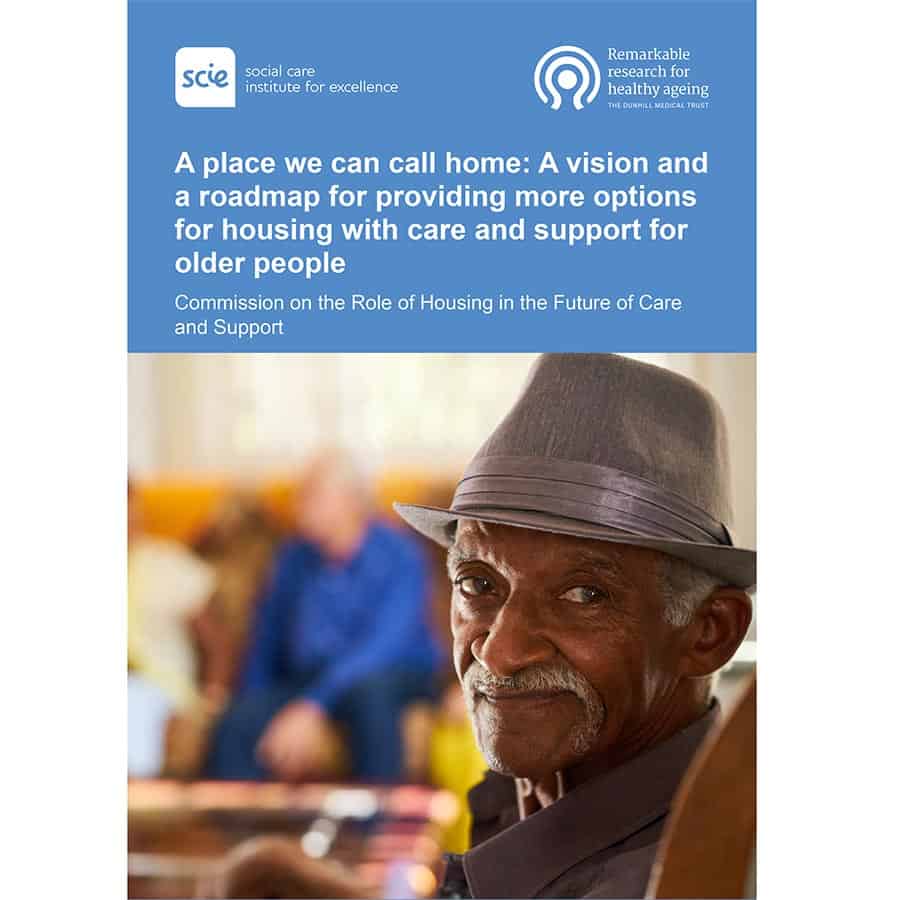Report highlights benefits of assistive technologies in supporting older people in housing

A new report has been published by the Commission on the Role of Housing in the Future of Care and Support, which details a roadmap for providing more options for housing care and support for older people.
Entitled ‘A place we can call home: A vision and a roadmap for providing more options for housing with care and support for older people‘, the report includes recommendations for national government and local authorities to design housing that supports people as they age.
The commission looked at the spectrum of housing options that provide care and support, including retirement housing, care homes and supported living, and heard from a range of older people about the challenges and difficulties they face, and the choices they want to see.
The report includes a number of recommendations for national government, local authorities and local partners, and developers and providers and paints a picture of what the route to achieving more choice, more consistently provides could look like.
Importantly, the document notes the importance assistive technologies across the housing sector to enable people to remain safe and independent at home. Acceleration of innovative devices has increased over the last 10 years, according to the commission.
This includes advances in remote monitoring devices, wearable technologies, movement sensors, robotics, and digital care planning tools.
“COVID-19 resulted in accelerated and innovative uses of technology as the social care workforce was forced to develop new ways of working in the face of a lockdown,” the report reads. “It is important to keep pace with these advances, as we have seen that useful technology has the real potential to enhance care experiences and outcomes. This will be all the more important as we develop new forms of housing that facilitates care and support.”
However, the commission notes some of the challenges to accessing these assistive technologies across the social care sector. This can be down to a lack of understanding of how these technologies work and a lack of funding or incentive for investment in such devices.
It says it is important that information and guidance about choosing appropriate assistive technologies and help with using them is also available to the social care sector, as it continues to grow.
There also needs to be ownership and commitment to the use and funding of new technology by all stakeholders, it advises. The report believes that the use of assistive technologies in housing will play a big part in the future of care and support.
In addition, the report recommends that the UK Government should create a national long-term vision and strategy for housing with care and support for older people, co-produced with people with lived experience and other key stakeholders.
The report further suggests that the government legislates for a new Housing Future Fund that obliges partners in local places, including the NHS and local authorities, to pool statutory funding and work together to develop a single plan for housing for older people.
Additionally, the UK Government should increase capital investment in housing with care developments particular of approaches to housing with care that support people to live independently, according to the commission.
Local authorities and local partners (local partners include the NHS and housing associations) are advised to form local partnerships to produce a single plan for improving housing for older people within a local place, co-produced with people who draw on support.
Local authorities and local partners should also establish and resource local co-production forums made up of, and speaking for, older people from all kinds of backgrounds, to influence planning, commissioning and design of housing, the report recommends.
Developers should ensure that all new developments adopt the 10 HAPPI design principles as a minimum, which provide guidelines for the production of high-quality housing with care and support. Part of the HAPPI design principles include ensuring houses are adaptable and future-proofed for changing needs.
The report concludes that an overhaul is needed on how housing with care and support is planned, commissioned, designed and delivered, and calls for ambitious plans for housing with care and support to be at the heart of the government’s anticipated whitepaper for social care.
Read the full report here

